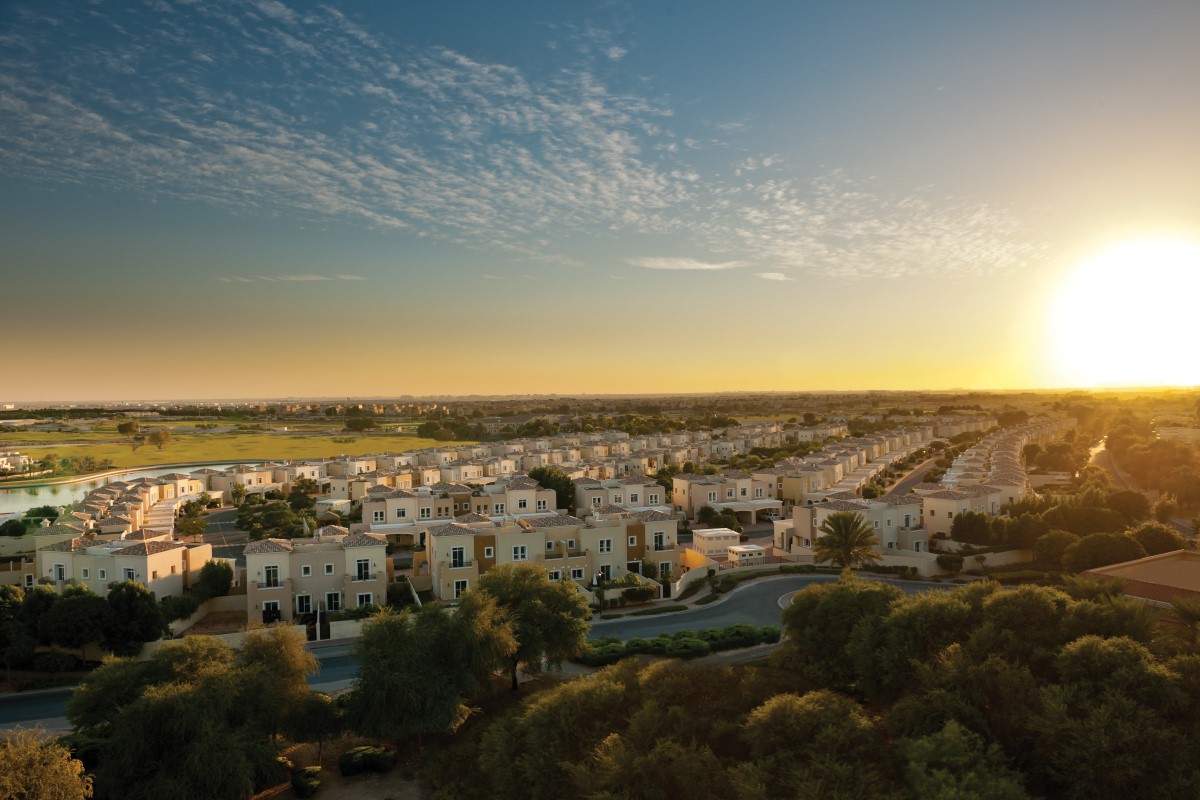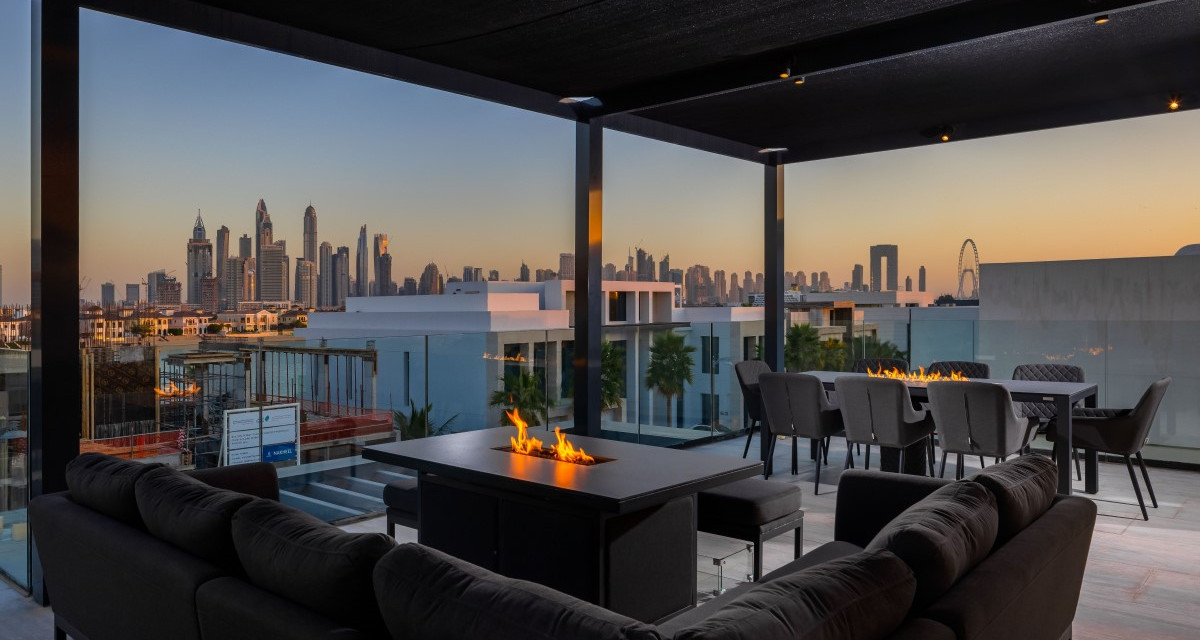Dubai’s post-pandemic rebound reaches new highs
EXPO events have long been heralded as a powerful marketing tool for countries, products, services and economies as a whole. And it could be argued EXPO 2020 is doing just that for Dubai’s property market. A report by the Dubai Land Department notes the country’s real-estate market recorded almost 85,000 transactions worth around £90 billion in 2021, supported by economic stimulus packages and EXPO 2020. But this turn of fortune for the city’s property market is not likely to be because of the ongoing EXPO.
“There has been a lot of hype about EXPO 2020, and there is no doubt it has brought new businesses and people to the region. The short-term let market is very popular for example,” says Helen Tatham, head of community sales and leasing Dubai residential sales and leasing at Savills.
“[But] EXPO 2020 has coincided with the pandemic, and there is reason to believe the impact of the pandemic on Dubai’s property market has been far stronger than many realise.”
Dubai’s property market has been on something of a rollercoaster ride over the past two decades. From 2002 to 2008, property prices rose threefold and Dubai was one of the world’s fastest growing cities. International buyers made up a significant percentage of buyers, with popular projects including Palm Jumeirah and Jumeirah Garden City. But the global financial crisis of 2008 hit Dubai harder than many other world cities. It recovered well until 2014 when house price growth began to slow down and the market has been stagnant ever since with an oversupply of apartments, mortgage caps and new tax laws dampening demand. Until the pandemic hit.
“The momentum we have seen in Dubai property over the past 18 months has very much been driven by how well the government dealt with the Covid 19 pandemic and the fact it was more efficiently managed than other regions,” says Tatham.
Dubai’s response to the pandemic included a strict lockdown and border controls, and was followed by a swift vaccination effort: it has been heralded for administering the most daily vaccine doses at a rate of 1.16 doses per 100 people.
As a result, the past year has seen a standout influx of buyers from Europe who are choosing to settle in Dubai – not for the short term or tax purposes, but because they see an opportunity to create a new lifestyle abroad.
“Dubai has seen more wealth arrive over the past 18 months as both individuals and business owners realise they can afford to live and work (sometimes remotely) in a different country. It is allowing them to consider a lifestyle very different from the UK or Germany or France, with much better living options, access to leisure amenities, restaurants and schools.”
This trend is, of course, not unique to Dubai – the pandemic has seen an increased demand globally for bigger homes including an office and gym alongside outside space. Demand for apartments has fallen. In Dubai this trend has been more pronounced.
Last year saw a near doubling of $10 million + homes being sold in comparison to the previous year. And in some areas, prices have increased by as much as 120 per cent. Whilst this is still some 30 per cent below the highs of 2014, it shows how interest in Dubai as a residential spot has increased.
Emaar, Dubai’s biggest property developer reported its highest-ever sales in the first nine months of 2021, whilst billionaire and Damac Properties founder Hussain Sajwani described the recovery of the market as “amazing”.
“Nowhere has witnessed the unprecedented uptick in activity or price growth in the same way as Dubai over the past two years,” says Andrew Cummings, partner and head of prime residential at Knight Frank.
“There are several reasons for that: namely we were at the tail end of a six-year downward trend for property price growth. But in addition to this, the pandemic has forced people to think about where they can and want to live.
Dubai is no longer seen as only a tax-free working city but a place where people can raise their families, have a career and enjoy sunshine for most of the year. In addition, Dubai is the most vaccinated country in the world, and people who may have visited for a holiday or short-term rental before are now considering this as a long-term or permanent move.”
The Dubai government is encouraging this too. It has started to loosen visa requirements and last year a new five-year retirement visa was introduced, as well as remote-working visas. In addition, it has continued to include more professions in the list of those eligible for long-term, 10-year visas. Meanwhile, for the first time ever, foreign nationals are able to have 100 per cent ownership of businesses. This is all encouraging more individuals to consider Dubai as a primary residence.
Further adding to the allure of the city is the fact prices remain relatively affordable versus other global cities like London, Hong Kong and New York. According to Knight Frank, $1 million secures up to five times more prime residential real estate in Dubai than London, New York and Singapore.
For investors the call of Dubai is even more appealing. As Cummings notes, prices remain below their 2014 peak, yet demand for larger properties continues to grow in 2022. In some villa neighbourhoods, agents describe a shortage of inventory to meet this demand.
Although, incoming supply over the next few years could put the brakes on price growth (Knight Frank expects to see some 125,000 units delivered by the end of 2025), villas are projected to account for just 20 per cent of new total stock, hinting strongly at the continued outperformance of villas relative to apartments.
“That said, developers who have been waiting on the side lines since before the pandemic, and those whose ambitions were dampened by the depth of the impact of the Covid 19-induced economic slowdown appear to sense an opportunity to capitalise on the resurgence in demand for larger homes… Nakheel has announced plans for a new villa community in Jebel Ali Village, while Emaar launched nearly 400 new villas at Arabia Ranches III [last year]. Should this trend of large-scale villa launches persist, there is a real risk of the villa segment of the residential market becoming over supplied.”
Yet property experts remain positive, whilst taking stock of the fact the property market in Dubai often experiences higher peaks and troughs than other global markets.
“We expect to see the rebound in property transactions and price growth continue in 2022 and new records to be set. We are predicting overall growth of between 10 and 15 per cent,” says Tatham. “In some areas where prices have already risen significantly those gains will be slower, and the apartment growth will equally be slower.”

47 per cent of $10 million + residential transactions in 2021 were on Palm Jumeirah
16.9 per cent increase in villa prices since the start of the pandemic
54 – number of sales recorded in ultra-prime bracket between Jan-Sep 2021 (previous record of 31 was set in 2015)
Source: Knight Frank








